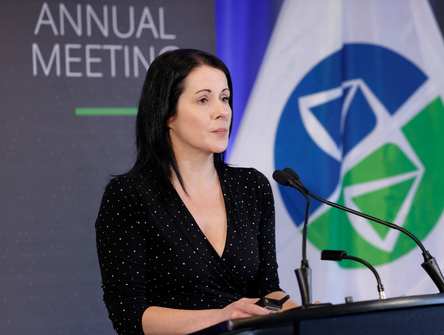Anti-racism as part of continuing professional development
It’s essential to advance systemic change among legal professionals.

Racial disparities exist in the law: in its application andits impacts, as an access to justice issue and in the experiences of legal professionals. Continuing professional development — an essential part of ensuring professional competence among legal professionals — must address this reality. It is all the more pressing that this be done, given the anti-racism and diversity issues that have come to the surface in recent years.
There’s more to competency than getting training in anti-racism, beyond merely diversity, and developing the cultural competency to address client needs. Lawyers must have the knowledge and understanding if they are to take part in changing and disrupting systemic racism and racial disparities.
As a racialized female lawyer who is also a young mother, racial disparities have been all too apparent to me throughout my studies and in my practice.But they are not at the forefront of all lawyers’ minds. Any mandatory CLE program should have courses geared towards race, cultural competency, and anti-racism so that all lawyers are equipped with the tools to serve diverse clients, to be allies to diverse lawyers, and to be agents of change.
The decision by the Law Society of Alberta to suspend CPD requirements to rethink how to ensure lawyer competency is anopportunity to mould a new mandatory CPD program recognizes discrimination, harassment and racism, and educates lawyers about unconscious bias, allyship and anti-racism.
Change must begin within the profession. Inequalities are perpetuated from lack of knowledge and self-awareness that allows biases and unintended practices of inequality to continue. Making such coursework mandatory would allow for all lawyers in Alberta to have equal knowledge about these issues. This public we serve would benefit from it, and the profession stands to become more diverse as a result of it, as well. It would improve the experiences of new lawyers entering the profession who report facing discrimination and harassment (see last’ year’s Articling Students Survey). It would help recruit diverse lawyers into the profession and retain them. And, it would benefit overall lawyer competence.
Here are some suggestions for what could be included as mandatory CPD courses.
Webinars that are mandatory both in CPLED for articling students and principals covering:
- Anti-racism: Definition, strategies to integrate this lens into running an inclusive practice, strategies to be an ally to those engaging in anti-racism efforts, learning of the barriers faced by racialized lawyers and law students, and learning skills to engage in self-awareness to facilitate change within one’s own attitudes;
- Unconscious bias: Definition (confirmation bias, attribution bias, availability bias, affinity bias), how it operates, the tangible impacts on racialized lawyers and clients of this, how to recognize it, and strategies to avoid it;
- Law Society requirements: Understanding Code of Conduct provisions relating to discrimination, racism, and harassment and the duty to report;
- Racialized inequalities in the law: History of racialized inequities in the justice system, breakdown of systemic racism in legal institutions, and current case studies demonstrating examples of systemic racism and its impacts; and
- Cultural competency: Dealing with clients and fellow lawyers.
Webinars that are mandatory for all lawyers annually covering:
- Breakdown of current news stories and issues relating to activism and racism (i.e. Black Lives Matter movement, MeToo movement, Truth and Reconciliation, etc.) – and the impacts of these movements and what lawyers can do to be allies and to further change as activists;
- Allyship: Strategies to show support and to also work with minority groups/coworkers to advance change; and
- The five mandatory webinars described above (i.e., anti-racism, unconscious bias, law society requirements, racialized inequities in the law, and cultural competency).
Optional CPD in-person or virtual seminars to expand on topics related to the above.
Or, in the alternative, if coursework is not mandatory but only a CPD filing is, then some suggestions to facilitate mandatory anti-racism and anti-discrimination education are:
- Requiring lawyers to take at least one webinar on either anti-racism, unconscious bias, discrimination and harassment, cultural competency, or racialized inequalities in the law; and
- Requiring lawyers to show that they participated in some way in one campaign, movement, or private reflection regarding anti-racism, unconscious bias, discrimination and harassment, cultural competency, and racialized inequalities in the law.
Making anti-racism, discrimination, and harassment mandatory a part of legal education is imperative to facilitate equity, diversity, and inclusion within the profession. It will further cultural competence and the opportunity to advance systemic change among lawyers. Lawyers will be in a position to serve the public better and law firms will become more inclusive workplaces. Finally, legal professionals will have the opportunity to move towards equity for themselves and society in general.


